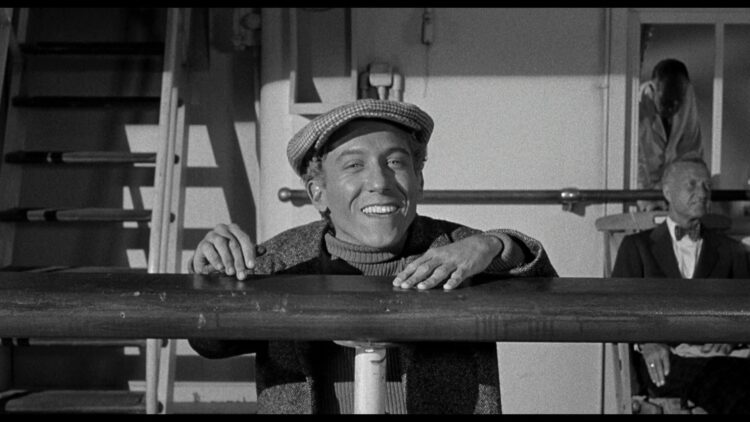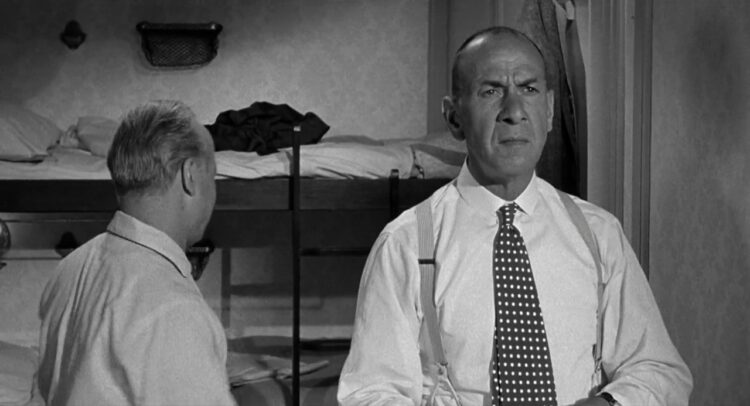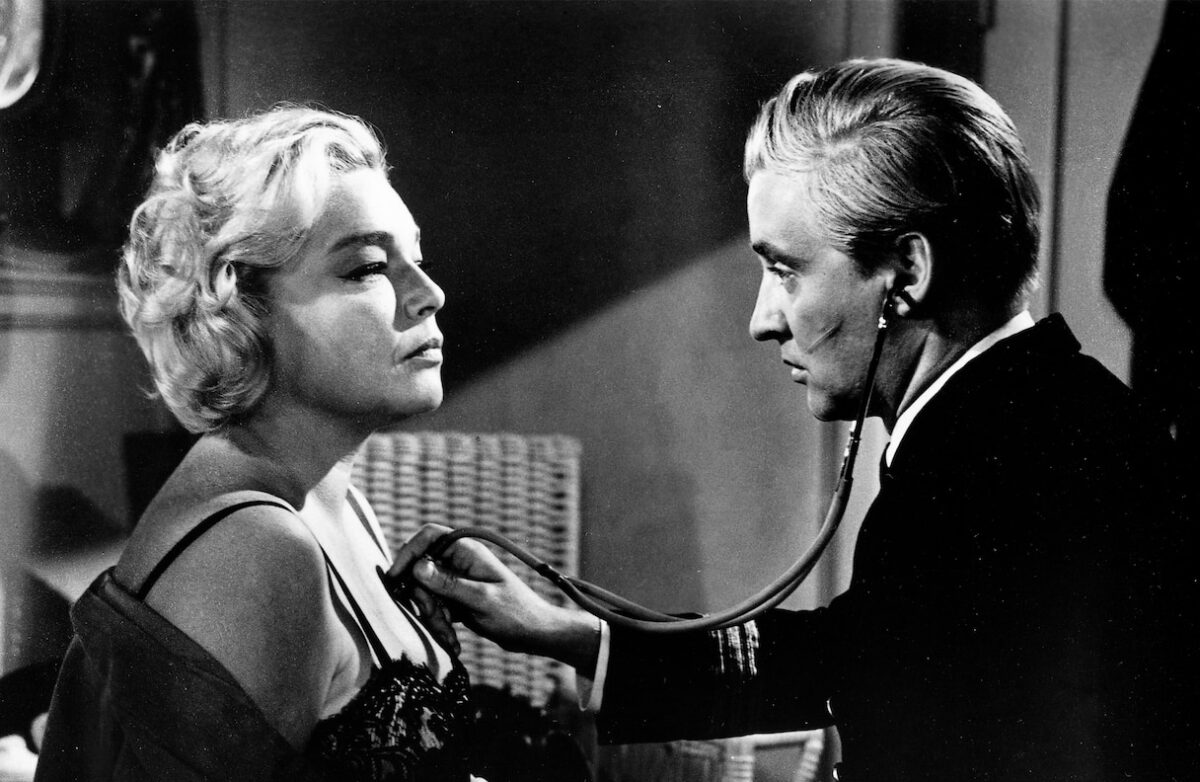Fifty seven years had elapsed since I watched Ship of Fools, and now I had the chance to revisit it thanks to the Turner Classic Movies channel. Would Stanley Kramer’s 2 hour-and-29-minute feature film be as absorbing, perceptive and impressive as it had been in 1965? Or would it be an outdated and kitschy relic best forgotten?
Adapted from a novel by Katherine Anne Porter, and powered by Abby Mann’s screenplay, the film unfolds in 1933 as a German ocean liner embarks on a 26-day voyage from Vera Cruz to Bremerhaven.
Adolf Hitler’s accession to power in January of that fateful year goes unmentioned, but it is clearly understood that Germany under the Nazi regime has entered an entirely new era in terms of its political and social orientation.
There are a wild assortment of passengers aboard the stately vessel, from Rieber (Jose Ferrer), an antisemitic German nationalist, to Lowenthal (Heinz Ruehmann), a German Jew. Thrown into the mix are La Condesa (Simone Signoret), a drug-addled Spaniard; Mary Treadwell (Vivien Leigh), a divorced American; Bill Tenny (Lee Marvin), a washed-up baseball player; Freytag (Alf Kjellin), a German who was married to a Jew, and David (George Segal), a painter.
To this cast of diverse characters are added Willy Schumann (Oskar Werner), the ship’s doctor; a Spanish dance troupe whose shady dancers scratch out an extra income on the side, and 600 scruffy sugar cane workers who have been deposited on the main deck and are being dropped off in Spain.

The narrator, Karl Glocken (Michael Dunn), a dwarf, is keenly aware of what transpires on the ship.
Schumann, a morose and world-weary person superbly portrayed by Werner, is on his last trip befor retirement. Thiele (Charles Korvin), the cynical captain, has formed a friendship with him and is saddened by his imminent departure.
At the captain’s table in the dining room, Rieber, played menacingly by Ferrer, spouts his aggressive opinions. The new regime will restore Germany to “national greatness,” he predicts. The busty blonde woman sitting next to him, a prototype of the perfect Aryan female, seems to agree with his upbeat appraisal.
Lowenthal, the Jewish jewelry salesman, has been assigned to a segregated table, having been banished from the captain’s table. Yet he’s an optimist. “There is prejudice everywhere, but there is no use giving it back,” he says. He shares his meals with Glocken, the acute observer who has been mistaken for a Jew.
La Condesa, beautifully played by Signoret, pours her heart out to Schumann, whom we learn, is alienated from his wife and children back in Germany. As he treats La Condesa for drug addiction, he begins a doomed shipboard romance with her.
Leigh, in her last appearance in a movie, plays Treadwell, a lonely divorcee who longs for love. Marvin delivers a fine performance as Tenny, a simple, over-the-hill athlete. He insultingly describes Glocken as “a sawed-off intellectual” and cannot understand why the Nazis are so hostile to Jews.
The least interesting passengers are David, the temperamental American artist, and his touchy girlfriend, Jenny (Elizabeth Ashley). Their relationship appears to implode as the ship gets closer to Germany.
Some of the sharpest dialogue comes from the mouth of Rieber. Denying he’s antisemitic, he professes to like Arabs, whom he calls “good people.”

Forced to share a cabin with Lowenthal, whose snoring disturbs his sleep, Rieber urges him to disregard his hostile comments about Jews. “It’s the march of history,” he says in a lame attempt to exonerate himself. But second later, he reverts to form. Their ensuing exchange is brilliant.
“You know it is a hisorical fact that the Jews are our misfortune,” Rieber says, quoting the rabid Nazi publisher Julius Streicher.
“Of course,” says Lowenthal.
“You agree?
“Of course. The Jews and the bicycle riders,” says Lowenthal in a sharp retort.
“The bicycles riders?” asks Rieber. “Why the bicycle riders?”
“Why the Jews?” Lowenthal replies.
Touche.
Toward the close of the film, Glocken tells Lowenthal he is the “most German” person he has ever met. Lowenthal, the recipient of the Iron Cross in World War I, disagrees with Glocken’s apt observation that the ship’s passengers represent a cross-section of Germany’s population.
Blissfully naive about the toxic developments in Germany, Lowenthal goes on to say he’s a German before a Jew. “What are they going to do? Kill us all?”
Glocken stares at him incredulously, as if he understands nothing.
Ship of Fools artfully conveys this impending sense of dread and doom, prefiguring the unprecedented tragedy of European Jews during the Holocaust.
